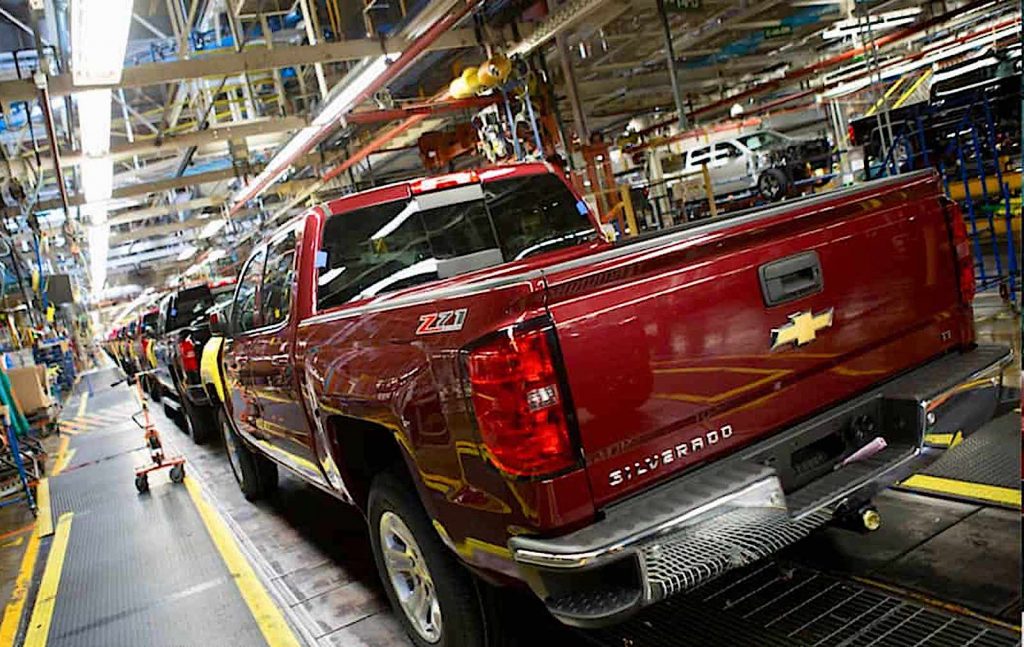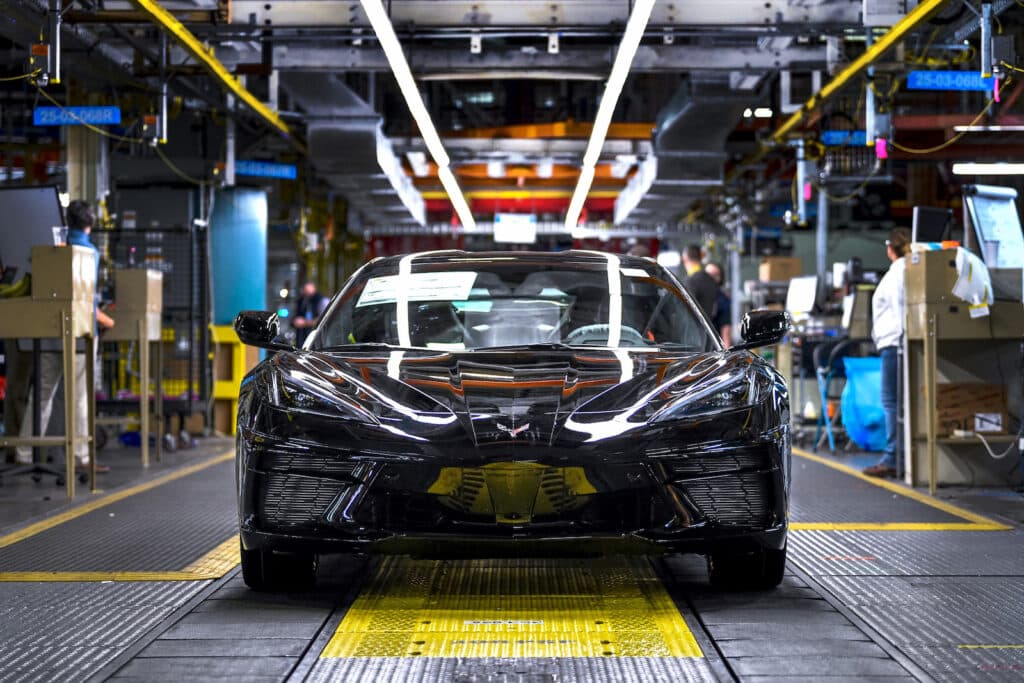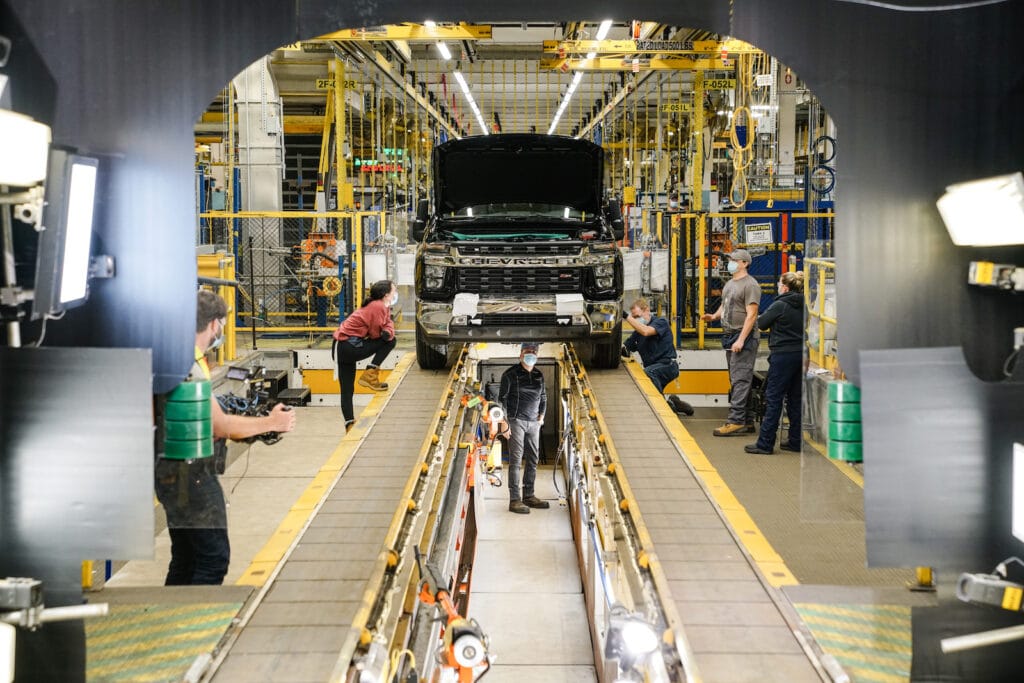More than two years after it began to pinch carmakers, shortages of semiconductors are continuing to slow production.

General Motors confirmed plans to shut down its big pickup truck assembly plant in Silao, Mexico for about a week due to the continuing shortages of semiconductors.
The Corvette assembly plant in Bowling Green, Kentucky also will be down until after Labor Day due to an issue unrelated to the semiconductor shortage.
Shortages frustrate carmakers
Reuters also reported Stellantis closed assembly plants in France and Spain last week due a disruption in the supply of components dependent on semiconductors. Stellantis also briefly shut down plants in Ontario, Canada because of the semiconductor shortages.
The shortages have impacted virtually every carmaker during the past two years, frustrating executives. Several manufacturers indicated in recent remarks they are no longer willing to predict when the shortages might end.

GM spokesman David Barnas said in an email, “Our production in North America has been relatively strong and stable since the third quarter of last year. However, short-term supply chain disruptions continue to occur, which has led us to make these production adjustments.
“We are actively working with our suppliers to resolve issues as they arise to meet pent up customer demand for our vehicles. We expect Silao Assembly to resume production on Monday, Sept. 5, and Bowling Green Assembly to resume production on Tuesday, Sept. 6, following GM’s annual observance of Labor Day.”
GM executives previously said demand for conventional pickup trucks remains strong despite rising prices, and at the end of July, the automaker felt confident enough about customer demand and the state of the company’s supply chain to add a third production shift at a plant in Oshawa, Ontario it re-opened last year to fill orders for pickup trucks.
Shortages slow GM’s truck deliveries

However, GM disclosed at the end of the second quarter, it had more than 95,000 vehicles, primarily high-end trucks, and SUVs — in temporary storage while the company’s waited for the delivery of critical parts requiring semiconductors.
Paul Jacobson, GM’s chief financial officer, said during a conference earlier this month, “We had a disruption in the end of the second quarter. We did not expect the volume to be that high,” Jacobson said. We are spending a lot of money on priority freight.”
“We’ve had to learn a lot about managing the supply chain more aggressively,” he said. “It has been noisier for longer than we would have liked. We have reduced then number of chip families by 95 percent. The simplification is going to be tremendously beneficial to us,” added Jacobson, who acknowledged the shortages linger into 2023.
Meanwhile, posts on social media indicate company and union officials at GM’s heavy-duty pickup truck plant in Flint, Michigan are dealing with an outbreak of Monkeypox among employees assigned to the third shift at the plants.
Production at the Flint assembly plant has not stopped, but the area where the employee who reported coming down with Monkeypox is being thoroughly cleaned to prevent anyone else coming in contact with the disease, according to social media. The disease usually spreads through close personal contact, but in some cases, researchers believe, can be spread by contact with infected surfaces.







